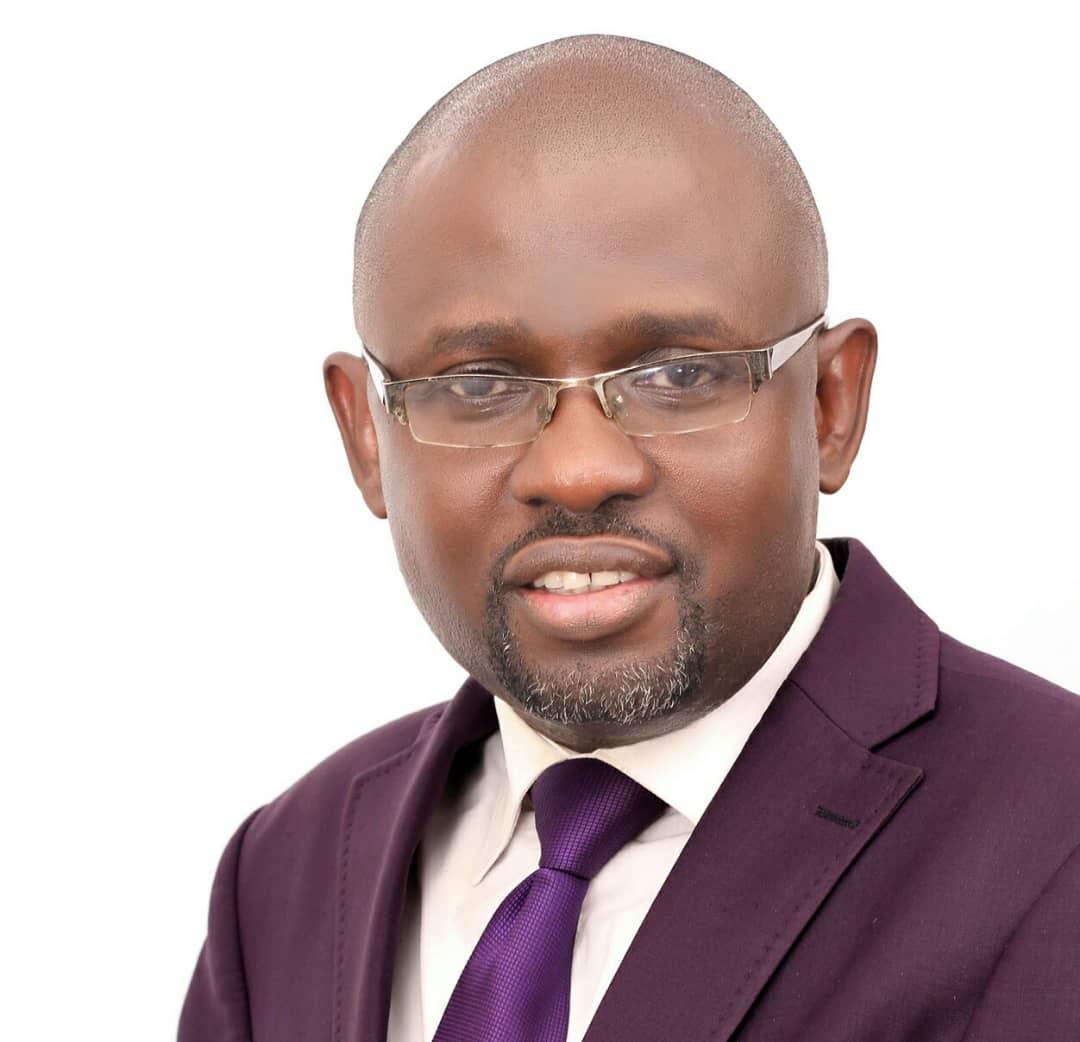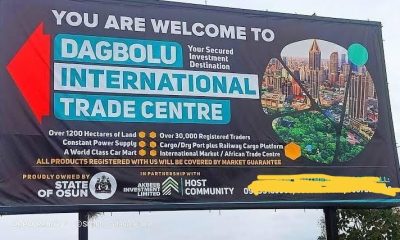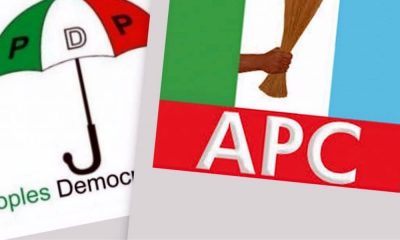Opinion
POLITICAL VIOLENCE AND SOCIO ECONOMIC DEVELOPMENT IN NIGERIA

By Yinka Olatunbosun
(MEd, MBF, MBA, ACIB, ACIA, ACIPM, MNIM, MNIMN, FCILG)
INTRODUCTION:
Violence has occurred so often in Nigeria and elsewhere, that is considered ‘normal’, except when there is a major loss of lives and property – as those instances in Syria, Egypt, Israel-Pakistan, America (Sept 11th 2001), Congo, Nigeria (Niger Delta, Borno, Yobe, Plateau, Bauchi). The main objective of this paper is to examine the likely causes of political violence and their negative effects on the socio-economic development of the people in Nigeria.
POLITICAL VIOLENCE:
Political violence is the use of destructive means or methods in an unlawful manner against persons, property, institutions, in order to publicise grievances, coerce or intimidate a government, opponents, the civilian population in furtherance of political, socio-economic, religious objectives.
Political violence in Nigeria is growing at an alarming rate. This trend should be a source of worry for all well-meaning Nigerians who want peace and progress for our dear country.
Based on human history, political violence has been present in the past events for all ages. It is a serious attribute of the majority of the developing global political systems most especially in developing nations like Nigeria where politics have become a significant attribute of the individual means of attaining economic wealth.
Political violence in the Western region majorly known as “operation wet e” were documented from 1964 to 1965 following both the Regional and Federal elections as well as the rift between Akintola and Awolowo.
Since the beginning of the present 1999 democratic exercise till the current day, the political activities in the Country have experienced a very serious extent political violence and power struggle.
CAUSES OF POLITICAL VIOLENCE IN NIGERIA.
i. INADEQUATE VOTERS EDUCATION:
The electoral umpire has a major task to carry out educating the voters on the dos and don’ts before, during and after elections. There must be a conscious effort to reach the voters physically to demonstrate and educate them on the need to carry out their franchise within the ambit of the law.
ii. FAILURE OF THE JUSTICE SYSTEM: A situation where politicians who have been indicted for electoral violence in the past are still working freely till this day tend to promote impunity among the political class, who has developed the mindset that they can get away with violent acts during the electioneering period. There is a need to look into the justice system to fashion out ways to prosecute electoral offenders.
iii. UNEMPLOYMENT: Majority of the mass number of youths who are unemployed are a ready made army in the hands of unscrupulous politicians. The desperation of the political class to grab or retain power by all means is consistent with the desperation of some of the unemployed youths to survive at all cost.
iv. CORRUPTION: Corruption is a menace that has eaten deep in virtually all strata of the Nigerian society. Indeed, the electoral system is not free from this menace as monies constantly change hands during electioneering period to induce, silence or influence the process as the case may be.
v. LACK OF INTERNAL DEMOCRACY IN POLITICAL PARTIES: Nigerian political parties have failed in their primary duty to re-orientate politicians within their fold on the need to play by the rules. Worst still, electoral violence is consciously or unconsciously encouraged at the party level when candidates emerge for the main elections. This is due to the flawed processes instituted internally by the parties.
vi. INADEQUATE SECURITY: The Nigerian security agencies are most times overwhelmed by the spate of political violence that has been witnessed in the society over time. Several media reports have detailed how security personnel were on ground when these acts were committed, but look the other way because of their limitations in terms of their numbers or tools they need to carry out their duties effectively.
vii. MISINTERPRETATION OF POLITICS:
Quite a lot of people in the Nigerian society believe that violence in politics is a norm. And they have unfortunately, gotten accustomed to the violence that spring up during the electionnering period. Infact, many youths who are recruited into the private armies of politicians, already have the mindset that their duty is to cause mayhem, foment trouble, intimidate voters and engage in a brawl with political opponents. This kind of mindset clearly shows that politics have been greatly misunderstood by the political class, the large section of the public and party followers.
viii. POVERTY: The mass poverty in Nigeria is capable of turning a decent man into a beast within a twinkle of an eye. The political class in the country are aware of this fact, and they use it to their advantage, knowing that getting people on their side is not a big deal, so far they can flash the cash. It is also the norm to influence voters’ decisions with cash and gifts in order to gain their support.
ix. LACK OF DEMOCRATIC CULTURE: Decades of military rule has affected the psyche of the average Nigerian and indeed Nigerian politicians. Indeed, many are still struggling to come to terms that we are now practicing democracy. Lack of democratic culture is evident in all the stages of the electioneering period from internal party wrangling, to campaign rallies, to political debates and to the interactions between politicians and the public. Efforts need to be made by civil society groups to instill democratic culture in the Nigerian populace.
x. LACK OF INTEGRITY FROM ELECTORAL UMPIRE: A situation where the electoral umpire clearly show bias for one group over another is a recipe for political violence. Over time, those whose duties are to conduct a free and fair election have been at the fore front of electoral malpractices, which in turn results to civil disturbances by political parties that have been cheated. The onus is on electoral umpires to ensure the electoral process is credible in order to eliminate the constant cases of violence that is now associated with elections.
SOCIO ECONOMIC DEVELOPMENT
Socio-economic development is any activity, or programme that creates sustainable access to the economy
for its beneficiaries. This means that, contribution from stakeholders should provide sustainable benefits. To
use the old saying, socio-economic development projects should teach (equip) people to fish, rather than giving them fish (politicizing and impoverishing) them. Socio-economic development is the
relationship between economic activity and social life. The NEPAD declaration implies that socio-economic
development is the continuous improvement in the well being and in the standard of living of the people. It
connotes meeting the basic needs that are essential to live a life of dignity by the people. This includes
access to quality education, better health-care, decent housing, safe drinking water, and good sanitation of
the nations’ wealth.
Socio-economic development is measured with such indicators as life expectancy, literacy, functional
education, employment, and GDP. The impacts of socio-economic development are seen in positive changes
in law (rule of law) and the supremacy of the justice system, changes in physical environment – curtailing the
forces of denudation that often render environment inhabitable, and changes in ecology. Socio-economic
development also requires action that will strengthen policies, delivery mechanism of outputs in key social
development areas – food, educations, Health care/HIV/AIDS, child welfare, gender equity (fair treatment)
and the protection of the vulnerable groups – women, youths, children, the aged and the disable. There is the need to address poverty, by reducing the suffering of the less privileged and increase their access to social
services/amenities, and to increase the poor people’s ability to generate an income of their own, in order to
liberate them from vicious circle of squalor, diseases and excruciating poverty.
Therefore, the key objectives of socio-economic development are:
1) Promote self reliance in developments, and build capacity, (skill acquisition training, loans,) for self- sustainingdevelopment.
2) Strengthen policies, delivery mechanisms
3) Ensuring affordable access to water, food, sanitation, finance, markets, ICT, shelter and land, especially for the rural poor.
4) Progress towards gender equity (fair treatment and access by all gender to opportunities) in all
critical areas of concern including education, employment, elective positions, appointments etc.
5) Encourage broad base participation in reaping of outputs and opportunities of development by all
stake holders at all levels.
IMPACT OF POLITICAL VIOLENCE ON SOCIO ECONOMIC DEVELOPMENT
Political violence deprives women of the opportunity to participate in a climate of thuggery, killing, maiming,
because they carry an essence that is not violence compliance. Thereby robbing the society of the subtle,
tenacious managerial capacity that only women can give.
The syndrome of giving appointment to unskilled, unqualified thugs, leaving the skilled people branded
“Opposition” has caused unprecedented decay in governance, low productivity in the entire civil service and
general apathy in the society.
Business people suffer serious losses as a result of political violence. Others move their businesses
elsewhere, which are a serious blow on the economy of the affected state, city, community thereby causing
congestion in places of destination.
There is politicization of social services, amenities, (electricity transformers, roads, farm-imputs) other
people belonging to “opposition parties’’ are not to benefit from provision of such amenities.
The massive destruction of life and property, throwing family members into grief, and misery. There is
erosion of confidence in the law enforcement agents, and general feeling of insecurity.
Political violence causes disturbances to social life and results to disunity in communities and families as well as resulting to antagonisms within and among societal groups.
Political violence creates migration of individuals resulting to mass migration of individuals from the Northern to the Southern part of the nation as a result of the destruction of property and assets as well as loss of human lives.
THE WAY FORWARD
There is dire need for a synergy between public and private sector for better coordination, supervision and
proper channelling of society’s resources and opportunities to the right places, persons, to assuage the suffering of the people. In doing this, the right information is very important, in order to alley the growing
cynicism and resentment of the public, especially against government/functionaries that often burst into anger
and violence. There is therefore need to create easy access to information about government activities
through easy outlets to reach every segment of the society – not paid or hijacking of media units by
government functionaries without concrete ends.
There is need for total overhaul of the social, economic, political, cultural, religious policy statements,
implementation and supervision to reflect the current reality in the country.
Time has come for government to take the civil service seriously – make it workable in their roles, regarding the enactment, implementation, funding, quality control, step-by-step supervision, application of sanctions to violations of rules and regulations.
The decay in the justice system in this country needs to be addressed. There is dire need to allow “separation of powers” and the ‘independence’ of the judiciary to bear; an independent funding be created for
the judiciary and it should be removed from the direct control – appointment of and removal of judges –
massive renovation of courts all over the country to create a “new feeling” and establish ‘new justice instinct’. Workers, students, civil society unions/organizations, and the intellectual community need to either track-back, or evolve unionism or activism of dignity, based on sound socio-political philosophy that is people oriented, with achievable goals and objectives. Campuses of tertiary institutions should be rid of do or die politics; stakeholders should take steps to make students/youths activism a process of leadership building
capacity for future leaders; and this is an urgent step that must be taken.
The judiciary should engage in the realistic interpretation and application of the constitution; the political
elite should be stopped from subverting the constitution in order to minimize the cases and issues of “non
indigenes” and ‘settlers’ thereby reducing ‘Politico-religious’ violence.
Finally, the security operatives should be educated on democratic ideals, as they often use barbaric means of “instilling law and order”, which many times rather entrench crimes and break down of order.
Political violence is an ill wind of social phenomenon that does no one any favour. In its aftermath, both its victims and perpetrators are losers.
Therefore, politicians must carry out their campaigns in respect to issues rather than attacking their political foes on the mobilisation of regional, ethnic and religious sentiments.
The campaigns should center on the execution of the essential national economic, social cultural, political, health and educational services. Political parties should act as a means of democratic governance instead of working as a coordinated criminal enterprise applied for gaining, seeking and retaining power so as to loot public treasury. The acceptable remedy to political violence in any society or community is JUSTICE.
Disclaimer: The content of this paper was the opinion of the writer and in no way reflects the opinion of the publisbers of CityMirrorNews.
-

 News4 days ago
News4 days agoRamadan, Lent: Shettima Calls For National Unity And Compassion
-

 Opinion4 days ago
Opinion4 days agoReinventing Osun’s Economy Through Dagbolu Intl. Trade Centre: From Quiet Market Lessons To Regional Trade Revolution By Adeboye Adebayo
-

 News4 days ago
News4 days ago‘Wike Factor’: Another PDP Chairmanship Candidate Steps Down For APC In FCT
-

 News3 days ago
News3 days agoInsecurity: Kogi Schools Resume On Monday


